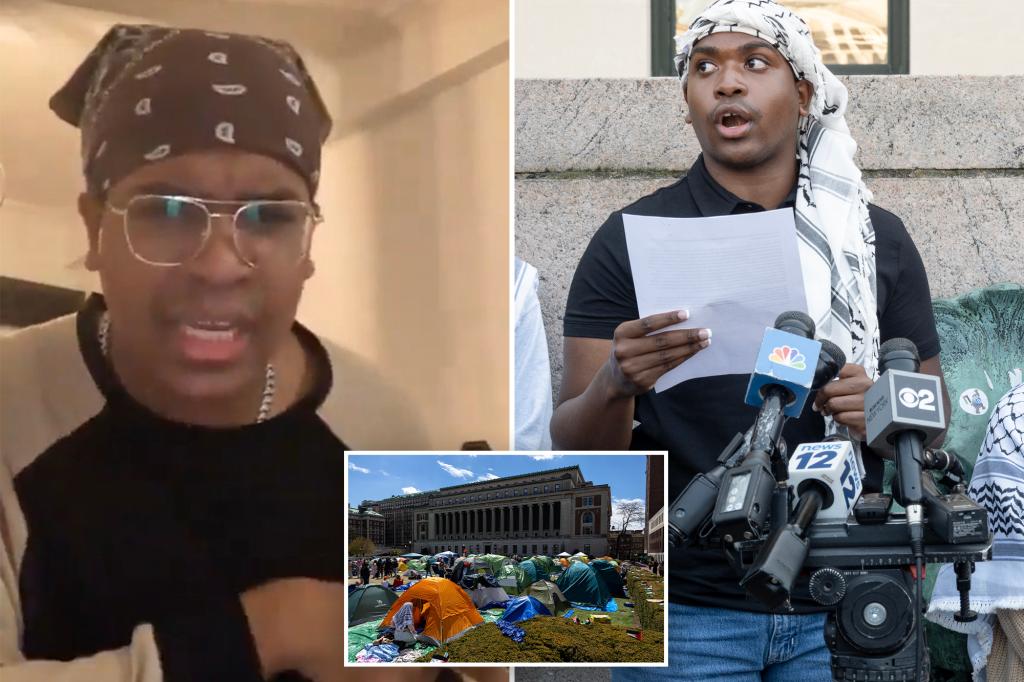A video resurfaced showing Columbia University student Khymani James making disturbing remarks, publicly stating that “Zionists don’t deserve to live.” This was caught on camera during a meeting with university officials, where James live-streamed the comments on social media. The student went on to compare Zionists to Nazis, fascists, and racists, expressing that they shouldn’t exist in the world and that James could have gone further by physically harming them. This sparked controversy and backlash against James, who is a spokesperson for Columbia’s anti-Israel student group Apartheid Divest.
The video showed James being questioned by Columbia’s Center for Student Success and Intervention over a past Instagram post that featured violent rhetoric towards any Zionist seeking confrontation. When asked if James understood the problem with the post, the student confidently stated that they did not see an issue. James further defended the comments and expressed comfort in calling for the death of those they disagree with. It is unclear if there were any repercussions for James following the meeting or if it was a disciplinary hearing.
The circulating footage of James’ inflammatory remarks coincided with ongoing anti-Israel protests on Columbia’s campus, where the student has been actively participating. In response to the backlash, James issued a statement apologizing for their words, claiming that they were taken out of context and edited to suit a particular agenda. James cited being targeted by far-right agitators due to their identity as a queer and black individual, which contributed to their emotional state during the recorded video. Despite the apology, James expressed frustration that their comments had overshadowed the Palestinian liberation movement they intended to support.
The controversy surrounding James and their comments highlights the tension and division around the Israeli-Palestinian conflict on academic campuses and society at large. The provocative nature of the remarks, which called for harm against a specific group of individuals based on their beliefs, raises concerns about free speech, equality, and respectful dialogue within university communities. Columbia University faced scrutiny for allowing such rhetoric to be expressed on its campus, and questions arose about how academic institutions should address and respond to hate speech or incitement to violence among their student body. The incident serves as a reminder of the challenges in fostering constructive conversations and promoting peaceful coexistence, especially in sensitive and polarizing topics such as the Israeli-Palestinian conflict.


